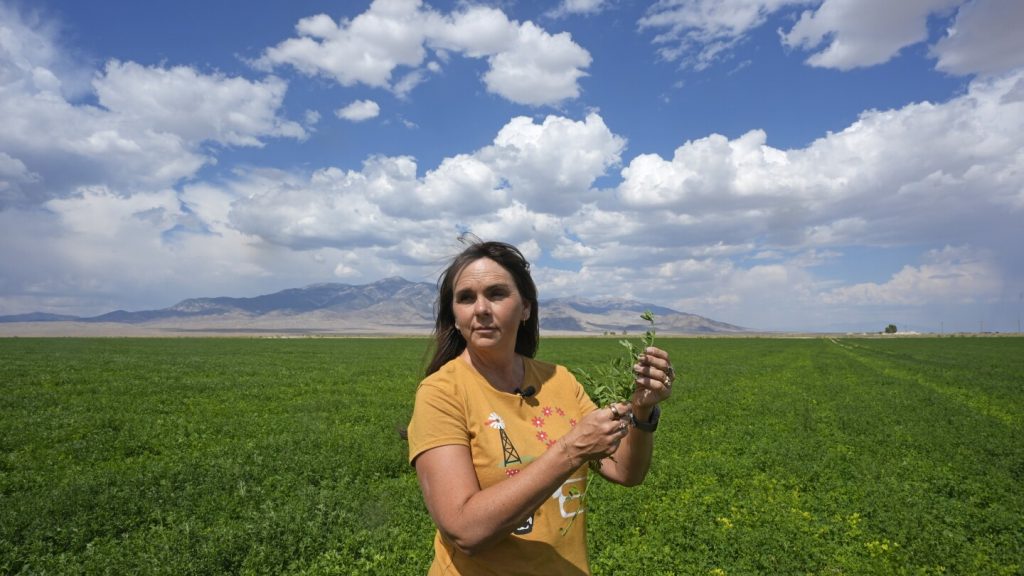Janille and Tom Baker’s ranch in remote eastern Nevada relies on an agricultural guest worker program that brings in Mexican immigrants to help harvest crops in fields where temperatures frequently exceed 100 degrees Fahrenheit. Despite following federal rules that prioritize offering jobs to U.S. citizens first, the ranch has struggled to find American workers willing to do the demanding work. Immigration has become a significant issue in the upcoming presidential election, especially in Nevada, where 19% of residents are foreign-born and around 9% of the workforce lacks legal U.S. status.
In Las Vegas, fear and uncertainty loom among immigrant workers like Nancy Valenzuela and Haydee Zetino. Valenzuela plans to vote for Vice President Kamala Harris, while Zetino, originally from El Salvador, is an immigrant with temporary protected U.S. status. With immigration being a key issue in the election, the outcome could have significant economic repercussions, especially in states like Nevada, where the loss of workers without legal status could lead to job losses comparable to the 2008 financial crisis.
Both former President Donald Trump and Vice President Kamala Harris have proposed contrasting approaches to immigration, with Trump advocating for mass deportations and stricter policies, while Harris supports a path to citizenship for long-term residents without legal status. Polls show that Trump has an advantage over Harris on immigration, but the complexity of the issue is evident in the diverse views of voters in Nevada. The bipartisan push for tighter border security has clouded the larger immigration discussion, leading to challenges in finding common ground.
Workers like Haydee Zetino, Erika Marquez, and Maria Nieto have personal stories that shed light on the human side of the immigration debate. While the issues surrounding immigration are complex, the potential economic consequences of mass deportations could be dire, impacting industries like mining, agriculture, services, and manufacturing. In Nevada, where a significant portion of the workforce consists of immigrants without legal status, the effects of harsher immigration policies could be devastating.
At Baker Ranch, the H-2A visa program brings immigrant workers to help with farming tasks essential to the ranch’s operations. The ranch, which produces high-quality hay for horse centers in Florida, relies on immigrant labor to sustain its business. Despite the challenges and complexities of the immigration system, the Bakers acknowledge the crucial role that immigrant workers play in their ranch’s success. The need for comprehensive immigration reform remains a pressing issue that requires a balanced approach to address the concerns of both immigrants and American citizens.


